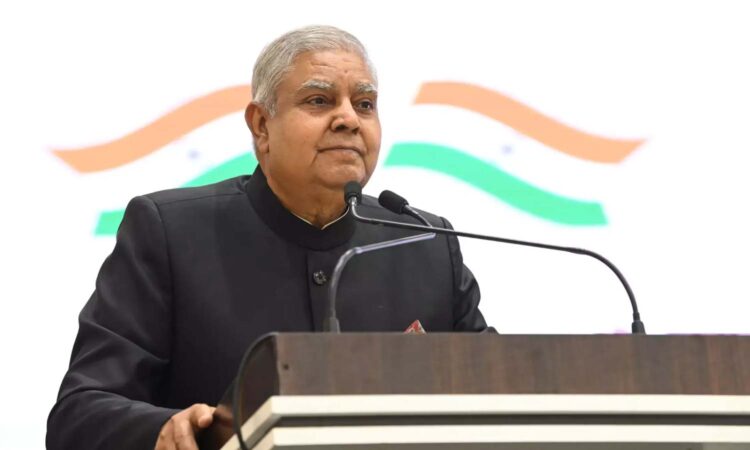NEW DELHI: Amid an ongoing debate over the jurisdiction of the Supreme Court, Vice President Jagdeep Dhankhar on Tuesday declared that Parliament holds the highest authority in the country and no institution stands above it. He made these remarks while addressing a programme on the Constitution at Delhi University.
Dhankhar asserted, “Parliament is supreme, and there can be nothing above it. MPs are the true custodians of power; they decide what the Constitution will be. No authority can exist above them.” His comments come in the context of a recent clash between the judiciary and the legislature over constitutional roles.
This is not the first time Dhankhar has raised concerns over judicial overreach. On 17 April, he had stated that the Supreme Court appeared to be functioning like a “supreme Parliament,” a comment that sparked widespread political discussion.
The Vice President’s latest remarks coincide with the Supreme Court taking up a matter involving BJP MP Nishikant Dubey’s recent statement. Dubey had questioned how the Chief Justice of India (CJI) could issue directives to the President, given that judicial appointments are made by the President.
The ongoing jurisdictional debate was triggered by a standoff between the Tamil Nadu government and the state Governor over withheld bills. The Supreme Court had ruled that the Governor must act within a stipulated time frame and set a one-month timeline for the President to act on state government bills, intensifying the constitutional discourse.
Referring to historical context, Dhankhar remarked, “A Prime Minister once imposed an Emergency and was held accountable by the people in 1977. There should be no doubt that the Constitution exists for the people and ensures their protection. Nowhere does it say that any institution stands above Parliament.”
Sharing a personal reflection, Dhankhar added that statements made by those holding constitutional positions are always made keeping the highest national interest in mind.
Earlier, on 17 April, he had reiterated that courts cannot issue orders to the President—underscoring his stance that the separation of powers must be respected, and the legislature’s authority should remain unchallenged.











